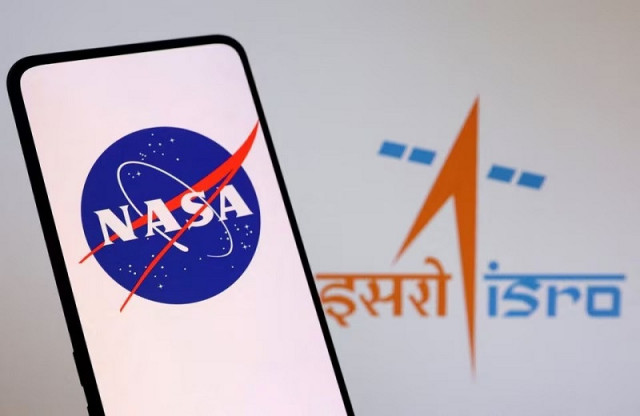NASA to train Indian astronaut for ISS voyage in deepening space ties
NASA will train an Indian astronaut for a 2024 International Space Station mission, enhancing space cooperation

NASA will train an Indian astronaut for a voyage to the International Space Station as early as next year, NASA Administrator Bill Nelson said on Wednesday, amid deepening space ties between India and the United States.
"There is an opportunity to share science," Nelson said, speaking at an event in Bengaluru, where he is due to inspect the NISAR satellite on Thursday.
NASA-ISRO SAR (NISAR) is a low-Earth orbit observatory system jointly developed by NASA and ISRO (Indian Space Research Organisation). Roughly the size of an SUV, the satellite is set to be launched from India in the first quarter of next year, with a target launch set for January.
NISAR will map the entire planet once every 12 days, providing data for understanding changes in ecosystems, ice mass, vegetation biomass, sea level rise, ground water and natural hazards including earthquakes, tsunamis, volcanoes and landslides.
India is aiming to increase its share of the global satellite launch market fivefold within the next decade and agreed to join NASA's Artemis Accords in June this year.
Read also: India completes crucial test in crewed space mission after delay
The accords aim to clarify and modernize principles of the widely ratified 1967 Outer Space Treaty by urging scientific transparency and establishing rules of coordination to avoid harmful interference in space and on the moon.
India in August won a race to reach the south pole of the moon against Russia after Russia's Luna-25 lander crashed from orbit. With western sanctions over Russia's war in Ukraine, the country might find it difficult to fund a successor.
China, which made the first ever soft landing on the far side of the moon in 2019, has more missions planned too after having spent $12 billion on its space programme in 2022, according to estimates. The US, meanwhile, is on track to spend roughly $93 billion on its Artemis moon programme through 2025.
"This is the golden age of space exploration," Nelson said at Wednesday's event.



















COMMENTS
Comments are moderated and generally will be posted if they are on-topic and not abusive.
For more information, please see our Comments FAQ